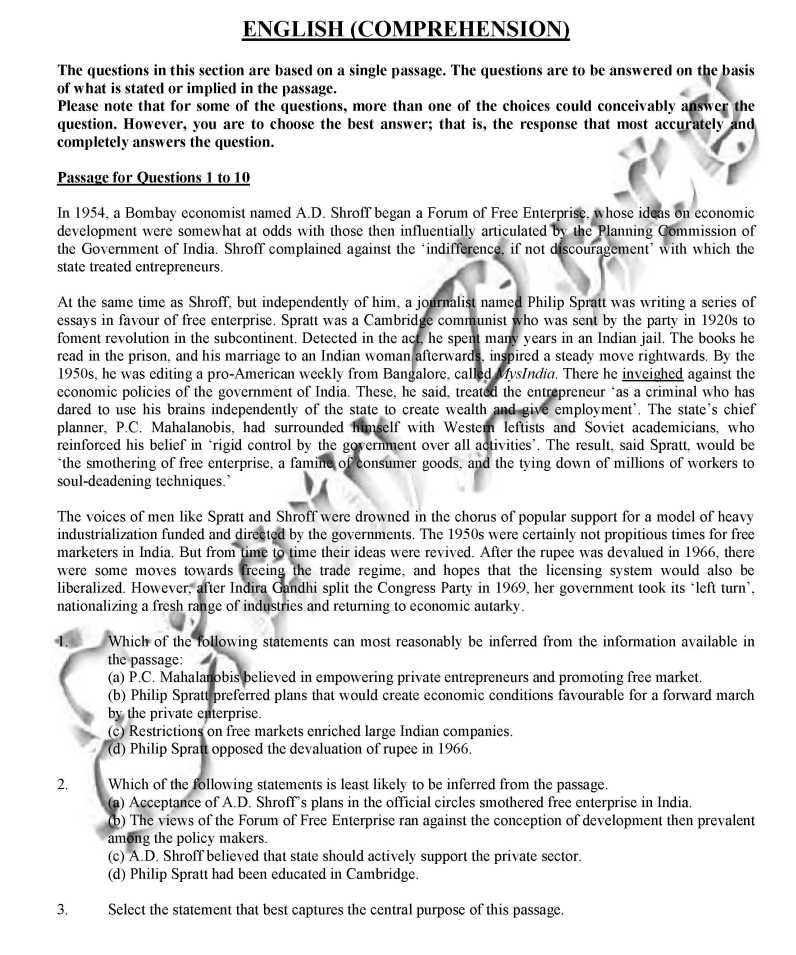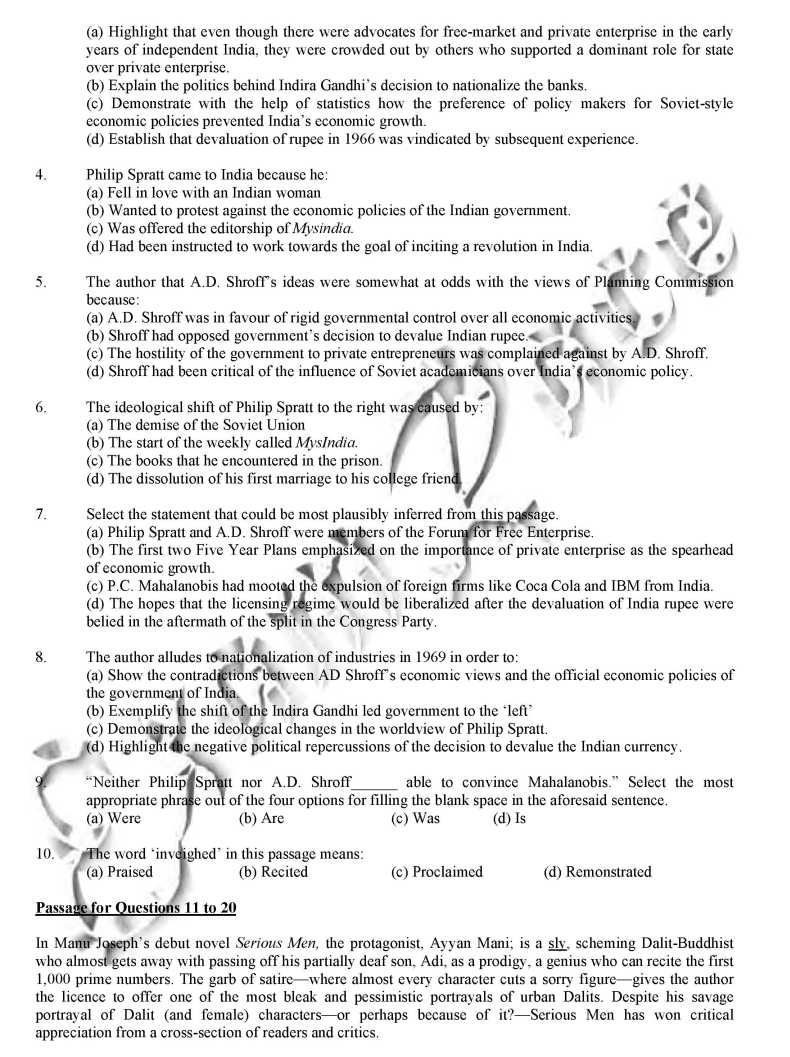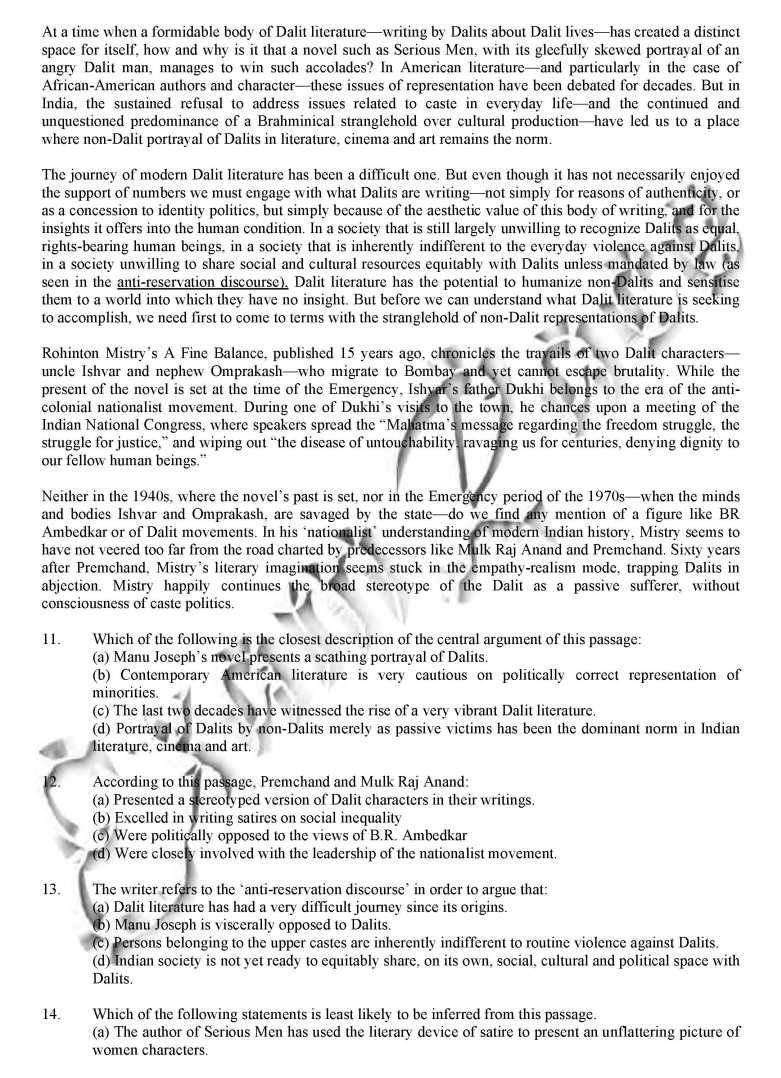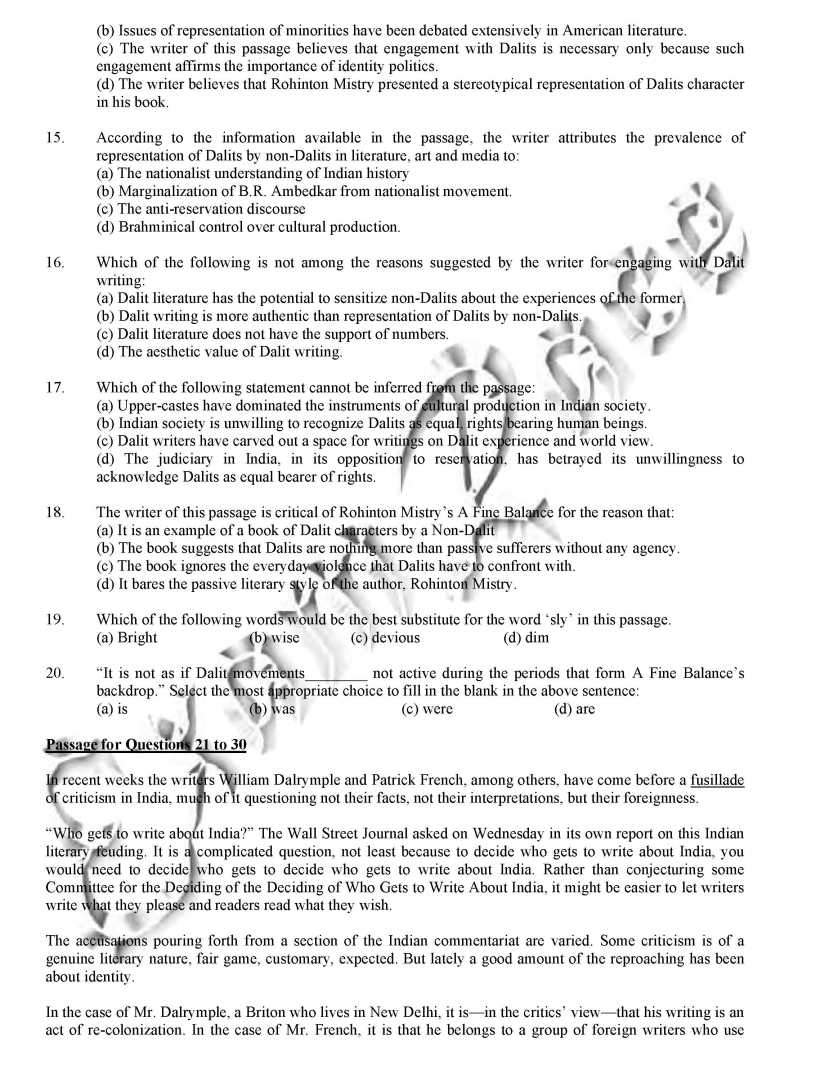|
#2
25th February 2016, 06:12 PM
| |||
| |||
| Re: Solved Question paper of CLAT pdf
As you have asked about the solved question paper of CLAT, I am giving you some information about it If religion and community are associated with global violence in the minds of many people, then so are global poverty and inequality. There has, in fact, been an increasing tendency in recent years to justify policies of poverty removal on the ground that this is the surest way to prevent political strife and turmoil. Basing public policy—international as well as domestic—on such an understanding has some evident attractions. Given the public anxiety about wards and disorders in the rich countries in the world, the indirect justification of poverty removal-not for its own sake but for the sake of peace and quiet in the world—provides an argument that appeal to self-interest for helping the needy. It presents an argument for allocating more resources on poverty removal because of its presumed political, rather than moral relevance. While the temptation to go in that direction is easy to understand, it is a perilous route to take even for a worthy cause. Part of the difficulty lies in the possibility that if wrong, economic reductionism would not only impair our understanding of the world, but would also tend to undermine the declared rationale of the public commitment to remove poverty. This is a particularly serious concern, since poverty and massive inequality are terrible enough in themselves, and deserve priority even if there were no connection whatsoever with violence. Just as virtue is its own reward, poverty is at least its own penalty. This is not to deny that poverty and inequality can-and do-have far reaching consequences with conflict and strife, but these connections have to be examined and investigated with appropriate care and empirical scrutiny, rather than being casually invoked with unreasoned rapidity in support of a ‘good cause’. Destitution can, of course, produce provocation for defying established laws and rules. But it need not give people the initiative, courage, and actual ability to do anything very violent. Destitution can be accompanied not only by economic debility, but also by political helplessness. A starving wretch can be too frail and too dejected to fight and battle, and even to protest and holler. It is thus not surprising that often enough intense and widespread suffering and misery have been accompanied by unusual peace and silence. Indeed, many famines have occurred without there being much political rebellion or civil strife or intergroup warfare. For example, the famine years in the 1840s in Ireland were among the most peaceful, and there was title attempt by the hungry masses to intervene even as ship after ship sailed down the river Shannon with rich food. Looking elsewhere, my own childhood memories in Calcutta during the Bengal famine of 1943 include the sight of starving people dying in front of sweetshops with various layers of luscious food displayed behind the glass windows, without a single glass being broken, or law or order being disrupted. 31. Select the statement that can be most plausibly inferred from the aforesaid passage. (a) A society plagued by recurrent famines can never witness political revolution. (b) Religious discrimination inevitably leads to violence and strife. (c) Destitution of the masses leads to peace and social stability. (d) Famines and starvation do not necessarily result in political rebellion. 32. The author believes that it may not be advisable to emphasise on the connection between poverty and violence as: (a) Emphasis on such connection appeals only to self-interest of persons. (b) Linking poverty and violence undermines the moral character of anti-poverty measures. (c) The absence of any essential connection between poverty and violence may then weaken the very rationale of anti-poverty policies. (d) There is no necessary link between poverty and inequality. 33. Which of the following best captures the central argument of this passage. (a) Religion is inextricably linked with violence (b) Famines may not necessarily result in civil unrest. (c) Global poverty and inequality are one of the fundamental causes of global violence and strife. (d) Basing anti-poverty programmes on the need for avoidance of violence and strife is dotted with many pitfalls. 34. In the given passage, the word ‘perilous’ means: (a) Scared (b) Costly (c) Futile (d) Dangerous 35. The author refers to his own experience as a child during the Bengal famine of 1943 in order to. (a) Illustrate how religiosity may instill passive acceptance of even the worst forms of starvation among people. (b) Repudiate the argument that religious discrimination usually tends to inspire violent protests. (c) Substantiate his assertion that it is not unusual to have the most intense suffering and misery coexist with complete peace. (d) Demonstrate that people confronted with acute starvation are rendered too helpless to protest ever at all. 36. The word ‘destitution’ in this passage can be best substituted by: (a) Dejection (b) Indigence (c) Default (d) Dereliction Solved Question paper of CLAT      For more, you can refer to the attached file |